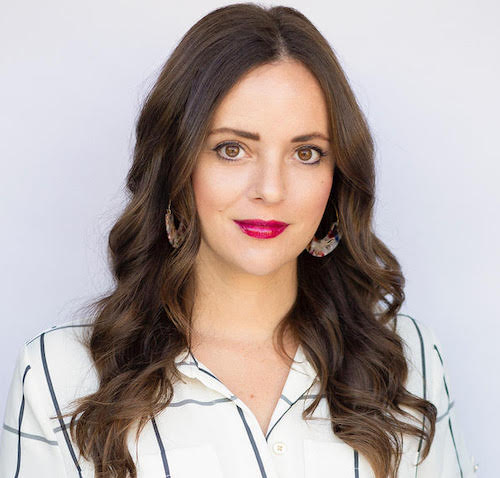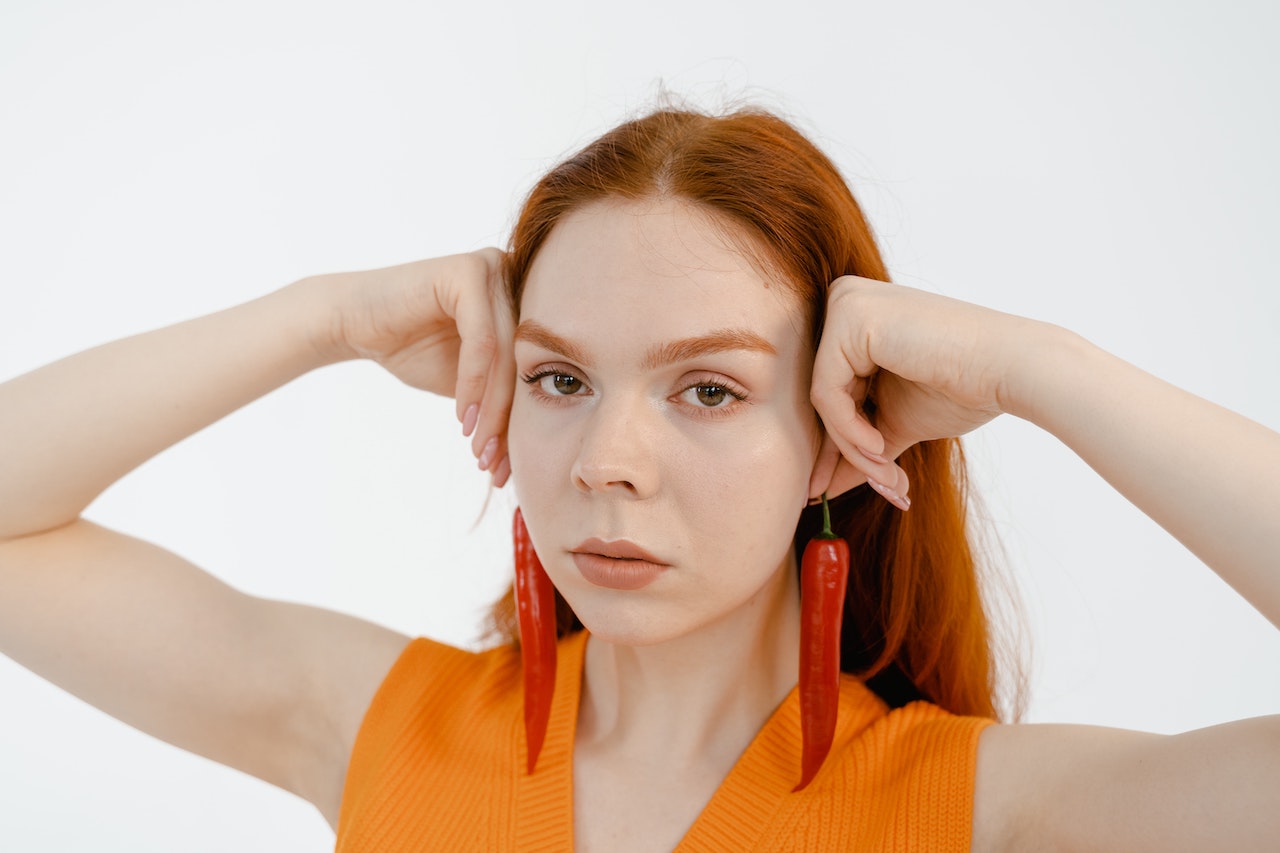If you've ever experienced hair loss or hair thinning, there's a strong possibility it was coupled with dry hair. According to the experts, there is, in fact, a correlation between the two, so if you're experiencing dryness in your hair and scalp, it's something you should address before it leads to hair loss. Read on to find out why this happens and what you can do about it, as well as the best products to combat hair thinning naturally.
Why Your Hair Might Be Dry and Thinning
There are many reasons why you might be experiencing dry hair and hair thinning simultaneously. Some are related to nutrient deficiencies while others are related to environmental reasons as well as poor health and haircare routines.
"The causes of dry or thinning hair can be many and varied, and are often related to other factors such as diet, health conditions and the use of hot styling tools," said plastic surgeon and hair transplant surgeon Dr. Harikiran Cheruki.
If you notice you've been suffering from brittle hair, here's what you can do to get your hair's health back on track and promote hair growth:
Check Your Diet
Dr. Cory Gaskins explained that while hair loss can be caused by several factors such as genetics, stress and certain medical conditions, a poor diet can play a role as well.
"Nutritional deficiencies are associated with hair loss, and eating a healthy diet is essential for maintaining healthy hair," he said. "Vitamin A is important for scalp health and hair growth. Foods rich in vitamin A include sweet potatoes, carrots and dark leafy greens. Vitamin B12 is also essential for hair health. This vitamin can be found in animal products like meat, eggs and dairy.
"Vitamin C is necessary for collagen production, which helps to keep hair strong. Citrus fruits, tomatoes and bell peppers are all good sources of vitamin C. Eating a balanced diet that includes these vitamins and other nutrients is the best way to maintain healthy hair.”
Read More: These 8 Foods and Eating Habits May Contribute to Hair Loss
Consider Your Current Health Conditions
There are several health conditions related to dry hair and hair thinning. "One of the most common conditions is alopecia," said Dr. Gaskins. Alopecia is an autoimmune disease that attacks the hair follicles. "This can lead to complete hair loss on the scalp, as well as other parts of the body."
Telogen effluvium is a temporary form of hair loss that can be caused by stress or certain medications. "There is also a condition called trichotillomania, which is an irresistible urge to pull out one's own hair," said Dr. Gaskins. If you suffer from any of these health conditions, check in with your healthcare provider.
Eating Disorders
Hair loss is also a common symptom of malnutrition, according to Dr. Gaskins. "When the body does not get enough nutrients, it starts to shut down non-essential functions in order to conserve energy," he said. "One of these functions is hair growth. Hair loss can be a sign that you are not getting enough of essential nutrients like protein, iron and zinc."
If you are losing a large amount of hair suddenly or you have brittle hair, talk to your doctor if you suspect you may have an eating disorder that's affecting the health of your hair.
"Eating disorders such as anorexia and bulimia can also lead to dry or thinning hair," Dr. Cheruki explained. "This is because these disorders can cause the body to lose essential nutrients that are necessary for healthy hair growth. If you suffer from an eating disorder, you should seek professional help to overcome it."
Remember: There is no shame in getting help if you or someone you love is struggling with an eating disorder.
Read More: Eating Disorders & Hair Loss: Are They Connected?
Hormonal Changes
Certain health conditions can also lead to dry or thinning hair, but hormonal changes can also affect hair. "An underactive thyroid gland, which can cause the body to produce less sebum, the natural oil that keeps hair healthy. Other conditions that can lead to dry or thinning hair include alopecia areata, psoriasis and lupus," explained Dr. Cheruki.
Thyroid hormones, in particular, may affect hair growth directly. "An imbalance in thyroid hormone levels can lead to hair loss or changes in the texture of your hair," explained Dr. Gaskins. If you're experiencing these changes and suspect they might be due to a hormonal imbalance, he recommended that you see your doctor for testing and treatment immediately.
Read: How to Help Dry Hair
Check With Your Doctor
Certain types of medication can also cause dry or thinning hair. These include beta-blockers, antidepressants and chemotherapy drugs. "If you are taking any of these medications, you should speak to your doctor about the possibility of using an alternative drug that won't cause hair loss," explained Dr. Cheruki.
Adjust Your Heat Styling Habits
Another common cause of dry or thinning hair is using hot styling tools like a hair dryer, curling irons or flat irons. These tools can damage the hair follicle, causing the hair to become weak and break off.
"If you use hot styling tools regularly, you should try to protect your hair by using a heat protectant spray before styling," explained Dr. Cheruki. "You should also avoid using these tools on wet hair, as this can further damage the follicle."
Shop: Heat Protecting Leave-In Conditioner SprayChange Your Shampooing Routine
One of the most common causes of dry or thinning hair is a lack of moisture. Dr. Cheruki explained that this could be caused by several factors, including washing your hair too often, using poor-quality shampoos that strip away natural oils or exposing your hair to harsh chemicals like chemical treatments.
"If your hair is lacking moisture, it will become brittle and more susceptible to breakage," he explained. "To avoid this problem, you should aim to wash your hair no more than twice a week using a mild shampoo that won't strip away natural oils. You should use a conditioner to keep it hydrated."
Avoid harsh chemical hair treatments as much as possible as these can lead to dry and brittle hair.
Read More: Hair Loss vs. Hair Breakage: Why the Difference Matters
Use All-Natural, Vegan Hair Products
VEGAMOUR GRO Hair Serum can help fight the many issues contributing to hair thinning or fallout. Sometimes hair loss is caused by stress, lack of sleep, over-supplementation, vitamin deficiencies, hormonal changes and even poor scalp health. More often than not, it's a combination of two or more of these issues, so a holistic approach to your hair routine is the best way to promote sustainable and long-lasting hair health.
VEGAMOUR'S plant-based GRO Hair Serum uses a combination of clinically-tested, 100% vegan phyto-actives that work together to support a balanced follicular ecosystem to keep your hair healthy. The serum also soothes the scalp and revitalizes your hair roots. It's free of toxic chemicals and carcinogens and is formulated with powerful phyto-actives shown to increase the appearance of hair density while reducing signs of shedding.
Pair that with VEGAMOUR's GRO Shampoo and Conditioner, a paraben-free, sulfate-free, cruelty-free and 100% vegan shampoo and conditioner duo that is enhanced with clinically proven plant actives and our proprietary Karmatin™ (the first-of-its-kind vegan keratin). This shampoo and conditioner duo has been formulated to give you your shiniest, healthiest hair yet. Nourishing natural oils like wild-harvested marula oil, organic murumuru butter and ximenia oil help to condition, hydrate and fight damaging free radicals without imparting pore-blocking residue. This keeps your hair biome healthy and happy by adding the perfect levels of nourishing moisture.
Read More: This Vegan Shampoo and Conditioner Changed My Hair
The Wrap Up
Dry thinning hair can occur for a myriad of reasons. It can be related to poor haircare habits, health issues or over-exposure to harsh chemicals or pollutants. It's important to get to the bottom of your dry hair. Once you know the root cause or causes, you can start to tackle the problem. Regardless of the core issue, one of the best choices you can make for your hair is to use salon-quality all-natural products that nourish thin hair from root to tip. That's your best line of defense to help your hair return to its healthiest and strongest state.
#include-related-slider#
More From VEGAMOUR
- Shop: Phthalate-Free Hair Products
- How to Moisturize Dry Hair
- The 5 Best Treatments for Damaged Hair
- 5 Best Treatments for Damaged Hair




















